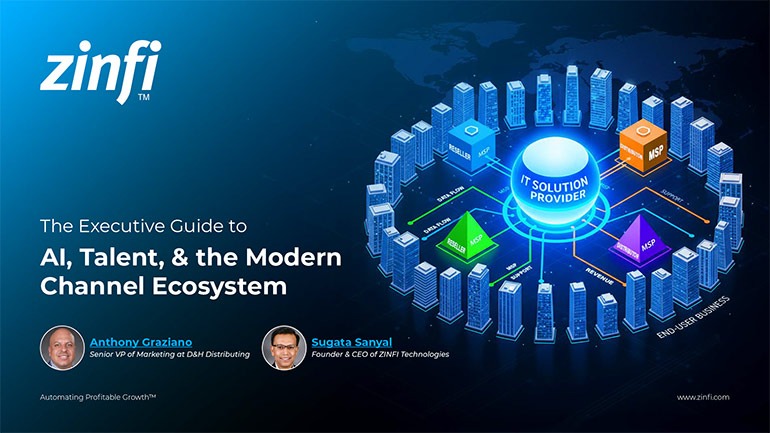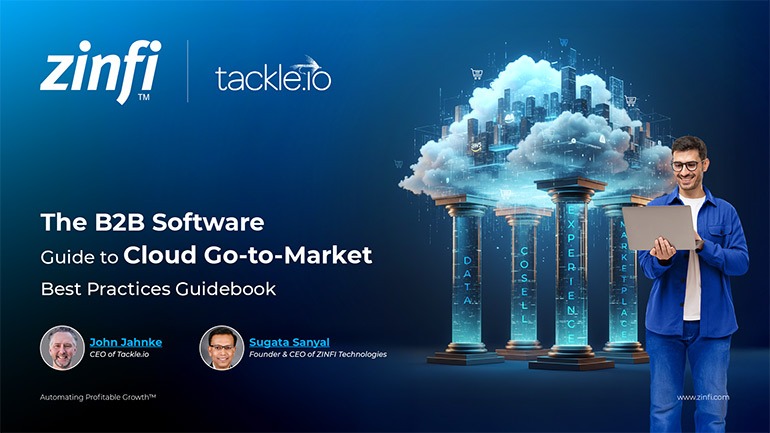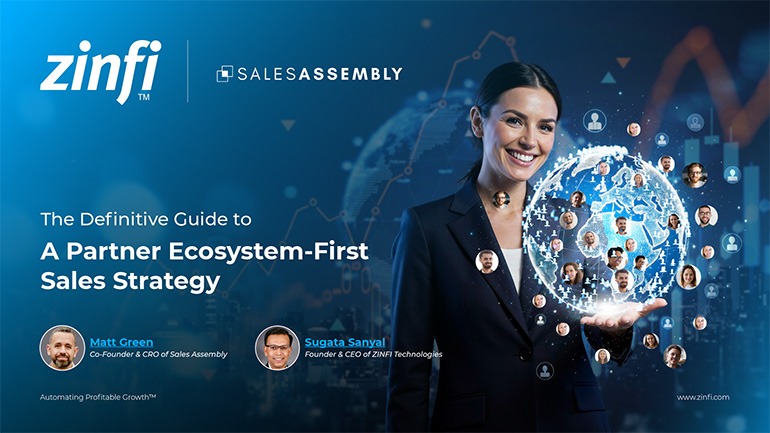Best Practices Articles

The Number 1 Feature for Partner Portal Software
In today’s age of digital business process transformation, it is likely that an organization doing business via a network of channel has deployed partner portal software to automate their engagement process with their partners. However, too often partner portal software fails to deliver, because most products lack the most important feature. What is it? How do we know it’s really the #1 feature? Both are fair questions, and I will try to answer them here in a structured way.
When you think about the partner ecosystem for any organization, it is fair to say that—just like human beings—no two partner organizations are exactly alike. They may be trying to sell the same set of products and services from a vendor, but they all try to differentiate from each other. Therefore, they build different motions and workflows and have different needs. For partners to be successful they need to have real-time access to relevant information, and the partner portal software must be able to deliver it.
In addition to delivering real-time information related to programs, pricing, policies and other key information, one other very important function of the partner portal is to provide personalized content and programs. A smaller partner may not have the competency to sell certain products and services, while a larger partner may be able to carry the entire line of solutions a vendor provides. A partner portal software should be intelligent enough to figure this out and differentiate between a small and a large partner.
Now, let’s add to this vision a global dimension. For vendors selling their wares all over the world, it is also essential to make sure that the partner portal software can speak local languages, and offer programs, products, pricing and other content that’s appropriate and relevant to specific countries or regions. This is critical to drive partner adoption. Partner portal software needs to be able to provide such content in a dynamic fashion in local environments.
In addition to personalized access in a localized experience, the partner portal software should also be able to address the needs of the partners through a mobile experience. Most partners are mobile. A few individuals, perhaps in technical or administrative roles, may operate behind a desk, but most marketing, sales and service professionals are now mobile. Partner portal software should have the capability to address partner needs wherever they need it—at work, at home or on the road. Partner portal software that offers a fully mobile experience is critical.
I could keep going and start deep-diving into other dimensions, like contracts, business planning, marketing, sales, incentives and so on, but there is one theme that applies to all of these capabilities. They need to be personalized and be relevant to a specific partner or a group of partners with similar needs. How do you do that? Well, you can address that via your partner portal software, provided that the software has a fully dynamic partner profiling capability. That’s right, you guessed it: The #1 feature of partner portal software is partner profiling.
So if you find yourself asking what partner profiling is and why it is important, then you are asking what I believe to be the most important question related to your partner portal software. As I tried to make clear in this article, for your partners to be successful, they need to have access to the right information (based on their profile) at the right time (home, office or away). This can be only done if you partner portal software is intelligent enough to recognize who individual partners are, how they differentiate from other partners, where they are located and the specific types of content they need.
It’s really quite simple: Your partner portal software’s profiling capability is the “brain” that can recognize who is logging in, where they are logging in from and what they need. Without granular partner profile management capability, your partner portal software will truly fail to deliver.
Best Practices Guidebook
 Modernizing Channel Marketing: AI and Ecosystem Enablement Best Practices
Modernizing Channel Marketing: AI and Ecosystem Enablement Best PracticesDownload for FREE
 The Channel’s Shift to Partner-Led With AI Best Practices
The Channel’s Shift to Partner-Led With AI Best PracticesDownload for FREE
 Hyperscalers, ISVs, and AI: Shaping the Future of B2B Software Distribution
Hyperscalers, ISVs, and AI: Shaping the Future of B2B Software DistributionDownload for FREE
 Definitive Guide to a Partner Ecosystem-First Sales Strategy
Definitive Guide to a Partner Ecosystem-First Sales StrategyDownload for FREE
 The Partner-Led Digital and AI Transformation Best Practices
The Partner-Led Digital and AI Transformation Best PracticesDownload for FREE
 Startup Talent Recruitment: Hiring Missionaries, Not Mercenaries
Startup Talent Recruitment: Hiring Missionaries, Not MercenariesDownload for FREE
 The Future of Partner Relationship Management with AI in Partnerships
The Future of Partner Relationship Management with AI in PartnershipsDownload for FREE
 Cybersecurity for the 99%: Strategies from the Frontline
Cybersecurity for the 99%: Strategies from the FrontlineDownload for FREE
 Mastering Partner Relationships: A Strategic Approach to Business Growth
Mastering Partner Relationships: A Strategic Approach to Business GrowthDownload for FREE
 Mastering Partner Relationship Management: Keys to SaaS Channel Success
Mastering Partner Relationship Management: Keys to SaaS Channel SuccessDownload for FREE
 Navigating the AI Revolution: Guide for Partners in the Microsoft Ecosystem
Navigating the AI Revolution: Guide for Partners in the Microsoft EcosystemDownload for FREE
 Mastering the Modern Buyers Journey: Sales Leader’s Guide to AI & Engagement
Mastering the Modern Buyers Journey: Sales Leader’s Guide to AI & EngagementDownload for FREE










